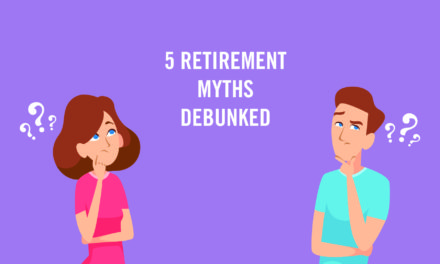Women in the United States generally retire around the age of 66. [1] And for some women, there can be significant planning challenges involved in preparing for a single retirement – meaning one without a partner or spouse to share the financial responsibilities. When facing retirement head-on, preparedness is a key component of securing financial stability and independence. Here are four tips women can use to plan and prepare for a peaceful, financially sound retirement.
Tip #1: Have a Plan
A 2020 study found that around 51 percent of unmarried women have not saved for retirement. By comparison, that number drops to 24 percent for married women. [2] The problem is, it’s likely you’ll be spending 10, 20, 30+ years in retirement, so having substantial savings is instrumental. The Department of Labor recommends that retirees prepare to live on 70 to 90 percent of their pre-retirement income in order to maintain their usual standard of living.
If you’re living on a single income, saving for retirement may be extra challenging. Developing a plan with plenty of time to prepare can help improve your retirement savings.
Tip #2: Prepare For Long-Term Care
Someone that is turning 65 today will have almost a 70 percent chance of needing some type of long-term care services and support in the coming years. [3]
With that being said, it may be beneficial to consider a long-term care insurance policy to help cover such costs. Even if you have family or friends who can help, long-term sickness or injury may require care beyond what your family can help with physically and financially. How will you be cared for and who will pay for the care? Assisted living and long-term assistance can be incredibly expensive.
Tip #3: Consider Delaying Social Security Benefits
Social Security provides benefits and financial protection for women with almost 55 percent of the people receiving Social Security benefits being women. [4] And it provides an inflation-protected benefit that will last as long as you live. When it comes to drawing from Social Security, it is advisable to delay this for as long as you can without going past the age of 70.
If you can delay until that age, your income will increase significantly each year. Even though your Social Security benefits can become accessible at 62, your full retirement benefits will only be available once an individual reaches their full retirement age, which is determined by their birth date. Any benefits that are received before reaching your full retirement age are reduced by a percentage, which is also determined by birth date. This ranges between 25 and 30 percent. [5]
According to the Social Security Administration, the reduction in benefits is typically permanent. If you were to access your benefits at 62, the percentage removed would remain even after you have reached your full retirement age. [6]
However, if you were to wait longer than the full retirement age to access your benefits, you can receive a retirement credit, which is a percentage based on how long you waited, up to the age of 70. [6]
Tip #4: Build a Network of Friends and Acquaintances
You may find yourself bored or lonely once you retire, so establishing friendships and acquaintances is a great way to find new activities and friendships. In fact, studies have shown that strong friendships can actually improve your health and prolong your life. [7]
Some ways to build new friends and acquaintances could include:
- Attending local events
- Starting a new hobby or interest
- Volunteering
- Joining a walking or exercising group
Retirement planning can be difficult enough as it is, but this can substantially escalate for single women. With the right planning, however, you can create a stronger future for yourself. If you have any questions or need help planning, click the button below, call 1.800.467.8152, or email info@ronaldgelok.com.
WE CAN HELP.
If you’re curious how you could optimize your retirement or financial plan, let’s talk. You can select from any of these options:
- Free discovery call. Ask any question you want. We can help you find the answers.
- Second opinion service. Already have an advisor? We can help give you a second opinion about your retirement strategies.
- Retirement Income Roadmap. This customized roadmap spells out when and where all your retirement income will come from – and how long it will last!
- Income Tax Reduction Analysis. Our most popularly requested item. This specialized report projects by how much certain strategies will reduce your income taxes.
- Full appointment with one of our advisors. Ready to have an advisor with a passion for tax-reduction on your team? Book an appointment to get started.
SOURCES
- https://www.oecd.org/els/emp/average-effective-age-of-retirement.htm
- https://www.ebri.org/docs/default-source/rcs/2020-rcs/rcs_20-fs-5_gender.pdf?sfvrsn=f6bc3d2f_6
- https://acl.gov/ltc/basic-needs/how-much-care-will-you-need
- https://www.ssa.gov/pubs/EN-05-10127.pdf
- https://www.ssa.gov/benefits/retirement/planner/agereduction.html#:~:text=You%20can%20start%20receiving%20your,your%20benefit%20amount%20will%20increase
- https://www.ssa.gov/pubs/EN-05-10147.pdf
- https://www.health.harvard.edu/newsletter_article/the-health-benefits-of-strong-relationships
This content is developed from sources believed to be providing accurate information, and provided by Twenty Over Ten. It may not be used for the purpose of avoiding any federal tax penalties. Please consult legal or tax professionals for specific information regarding your individual situation. The opinions expressed and material provided are for general information, and should not be considered a solicitation for the purchase or sale of any security.









